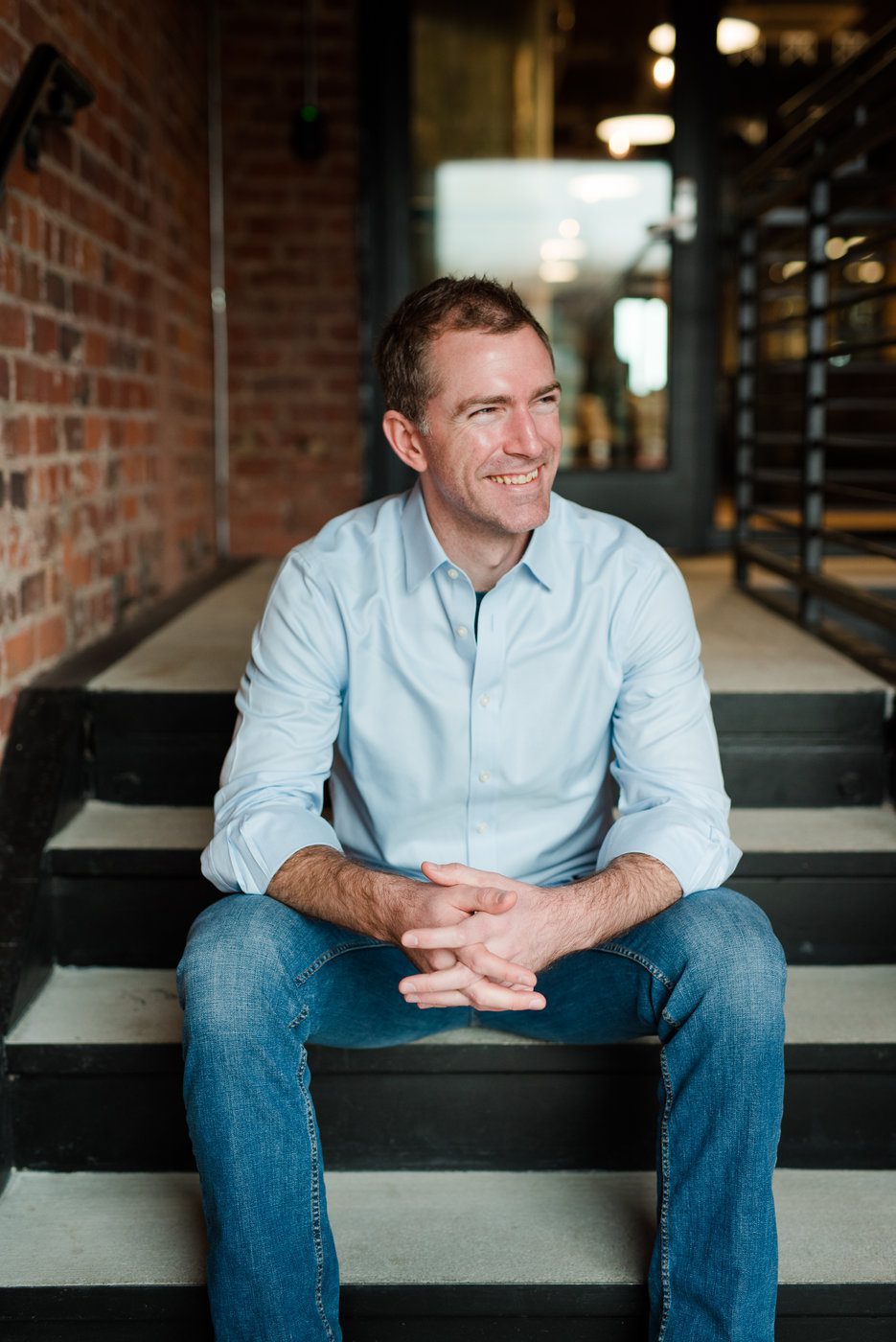Entrepreneurial alum
Since graduating from VCU with a degree in religious studies, Jason Murray has helped launch and lead two successful businesses, including Fringe, a Richmond, Virginia-based company that helps employers provide personalized lifestyle benefits. Here he shares the characteristics of an entrepreneur, how companies can retain employees and his top fringe benefits.
By Catherine Brown

Jason Murray (B.A.’05/H&S) launched his career as a campus staff member for InterVarsity Christian Fellowship at Randolph-Macon College in Ashland, Virginia. After six years, he became a financial adviser for Northwestern Mutual, a job that led to his first successful entrepreneurial endeavor: In 2018, Murray and friend Jordan Peace co-founded Greenhouse Money to provide an alternative model of financial planning for young professionals.
Later that year, Murray and Peace, along with Chris Luhrman, Andrew Dunlap and Isaiah Goodall, founded Fringe to help employers provide personalized lifestyle benefits, including virtual fitness, Netflix subscriptions, and grocery and prepared food delivery. Murray currently serves as Fringe’s head of growth and strategy.
“When I think about everything I’ve done, they seem like different career paths,” Murray says. “The consistent thread has been a passion for people, whether it’s mentoring and developing student leaders, helping families plan their futures or helping make work more human and personal and relational for employees.”
How did your experience at VCU influence you?
At VCU, I was encouraged to explore different paths; I started off studying engineering and math and shifted to religious studies and philosophy. Higher education provided a generally safe place for me to experiment with ideas.
What does it take to start and maintain a successful business?
It takes a willingness to fail. Jordan Peace and I have tried more things that didn’t work well than I can remember. Entrepreneurs are usually more willing to try stuff and be wrong than the average person.
You have to be all-in, whatever you’re going to do. Having your purpose and knowing your why helps give you the strength to persevere when things are difficult.
How did Fringe come about?
The idea sprang out of conversations about how companies could meet people’s needs in their day-to-day lives. Companies spend tens of thousands of dollars a year on benefits that don’t impact employees on a daily basis. We wanted to provide personalized benefits in a scalable fashion to help people in real ways.
Our broader vision is to help companies build workplaces that are more integrated holistically into people’s lives so that people can do the things they love and feel fulfilled and appreciated at work.
What have you learned about employee retention?
Loyalty doesn’t come from salary alone. Employees are happier when companies create environments where there’s trust, where people feel empowered, where they have autonomy and opportunities to grow.
It’s important for companies to consider that what makes one employee happy may be vastly different than what makes another employee happy. That’s a core part of Fringe’s philosophy.
What are your top fringe benefits?
Right now, grocery delivery is pretty huge. Shopping on my phone and having groceries show up is a dream come true.
Having experiences with my family and creating memories for them also feels really special. I hope other employees feel similarly — that they’re being enabled by these benefits to do things that feel meaningful in their lives.
Categories Alumni